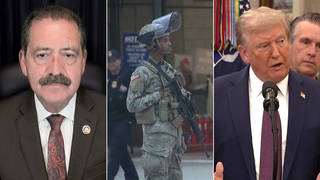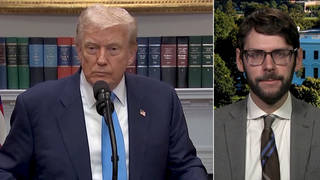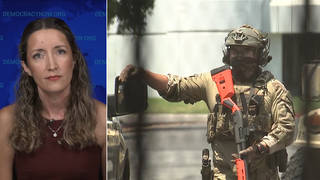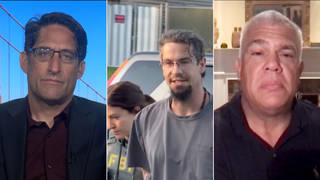At the U.N. Security Council Wednesday, U.S. Ambassador Linda Thomas-Greenfield suggested the U.S. would start to demand evidence from Israel it is not intentionally starving Palestinians.
Linda Thomas-Greenfield: “A policy of starvation in northern Gaza would be horrific and unacceptable and would have implications under international law and U.S. law. The government of Israel has said that this is not their policy, that food and other essential supplies will not be cut off. And we will be watching to see that Israel’s actions on the ground match this statement.”
This comes as a new report by Politico reveals a top Biden administration official told aid groups in late August that the U.S. would not restrict arms and funding to Israel, even if Israel blocked food and other aid from entering Gaza. Lise Grande, Biden’s special envoy for Middle East humanitarian issues, reportedly told the heads of over a dozen aid groups the U.S. would never “hold anything back that [Israel] wants.”
Inside Gaza, Palestinians say Israel’s deliberate, man-made famine has been evident for months. This is Karam Safi, a displaced Palestinian in Khan Younis who has been working with aid groups to provide food to up to 16,000 people.
Karam Safi: “Due to the closure of the aid crossings and the permanent siege of the north and south, we were compelled to distribute these lentils, and with very simple resources and capabilities so that we can serve these people. … I expect a very big catastrophe. A very big catastrophe. I mean of a special kind. Why? Because most of the adults and children will die of hunger. And the Israelis are doing this intentionally. They are carrying out this siege to kill the people one way or another, not by strikes, but by famine. The goal is to humiliate the Palestinian people.”
Meanwhile, UNRWA, which has been defunded by the U.S. since January, is warning it may soon no longer be able to function.
Philippe Lazzarini: “And I will not hide the fact that we might reach a point that we won’t be able anymore to operate. And if we cannot operate anymore in Gaza, it’s not just UNRWA as the main provider of services, but you have also the rest of the U.N. system, which very much relies and depends on the platform that the agency has offered so far. So, we are very near to a possible breaking point. When would it be? I don’t know. But we are very near of that.”









